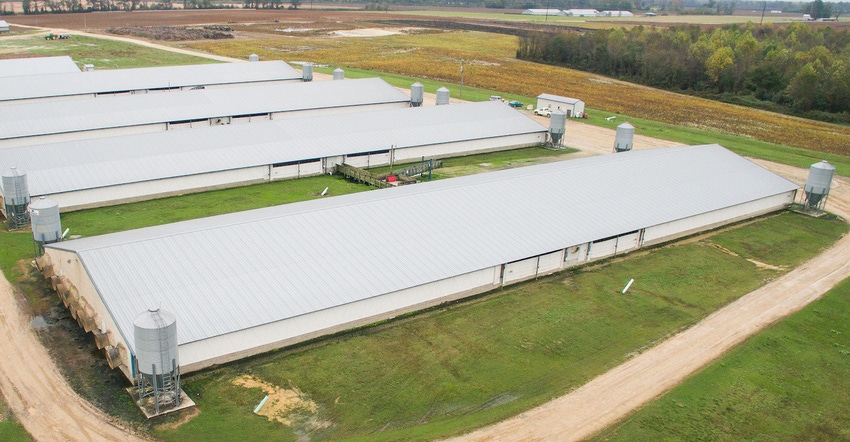Court strikes down gag order in North Carolina nuisance lawsuits
Appeals panel agree Smithfield should be allowed to speak on hog farm trials going on in North Carolina.
October 31, 2018

A three-judge panel of the U.S. Court of Appeals for the Fourth Circuit ruled unanimously Monday that the trial judge’s gag order in ongoing North Carolina hog farm nuisance lawsuits was an unconstitutional violation of the First Amendment to the U.S. Constitution. The panel granted the request by defendant Murphy-Brown LLC, a subsidiary of Smithfield Foods, that the gag order be struck down.
Judge Earl Britt issued the gag rule just before the verdict in the second trial this summer.
In August, the North Carolina Pork Council, the National Pork Producers Council and other groups filed an amicus curiae brief with the fourth circuit asking it to grant Murphy-Brown’s petition to vacate Britt’s prior restraint on speech, noting that “all but the most carefully crafted, narrow gag orders are unconstitutional.”
The court of appeals agreed. In a strongly worded decision, the court wrote that “the gag order contravened the First Amendment in basic respects.”
The appeals panel noted, “The gag order has already inflicted serious harm on parties, advocates and potential witnesses alike. It has muted political engagement on a contested issue of great public and private consequence. It has hamstrung the exercise of First Amendment rights. Even in short doses, these harms are hostile to the First Amendment. Indeed, as petitioner notes, the threat of a gag order will hang over these trials as a sort of ‘Sword of Damocles,’ dangling by the thread of the court’s displeasure. … Its chilling effect is evident and unacceptable.”
The panel’s decision also said, “The gag order harmed petitioner [Murphy-Brown]. Petitioner has identified various attacks on its business practices and public policy involvement to which it could not respond while the gag order was in effect. … It also could not respond to a flood of news coverage. …The gag order assertedly forced petitioner into an untenable posture of silence, imposing real consequences above and beyond the particulars of the legal proceedings.”
The panel noted that the gag order harms farmers, explaining that North Carolina farmers "assert they are prohibited from commenting on what they perceive as the almost existential threat posed by large nuisance suit verdicts to an industry they claim provides some 46,000 jobs for North Carolina. …The gag order, in their view, is forcing them into a posture of passivity at a time when they have every right to be outspoken.”
The decision noted that Britt, who issued the gag order on June 27, 2018, sought to rescind his order on Aug. 31, 2018. The panel said the judge’s attempt to rescind the gag order was “invalid," "ill-advised," "infirm” and “in error” because the order was already under appeal. The Aug. 31 order “plainly undercut the court of appeals in the orderly exercise of its own jurisdiction.” The panel directed the district court to vacate both the June 27, 2018, and Aug. 31, 2018, orders: “The parties are to start from square one with respect to this issue under the guidance set forth in this opinion, and then only if exceptional circumstances warrant.”
The imposition of the gag order was supported by the plaintiffs’ attorneys in the lawsuits. They also defended the order on appeal to the fourth circuit.
Other highlights from the ruling included:
“Gag orders warrant a most rigorous form of review because they rest at the intersection of two disfavored forms of expressive limitations: prior restraints and content-based restrictions.”
“Gag orders must survive strict scrutiny. … Strict scrutiny requires that a gag order serve a ‘compelling’ public interest.”
“The district court – without adequate factual findings or development of a record – found that a ‘significant increase in trial publicity’ supported the gag order, … but the fact of publicity is hardly dispositive. Publicity often accompanies trials, including trials in which the public has a keen and understandable interest. The judicial process does not run and hide at those moments when public appraisal of its workings is most intense. An impartial jury, moreover, need not be wholly unaware of information – including potentially prejudicial information – outside the record. … Jurors are not that fragile.”
“It is anything but clear that this gag order would accomplish its intended purpose of reducing risks to fair trial rights.”
“This gag order was unconstitutionally vague because it forced individuals to ‘guess at its contours.’ … The gag order also only vaguely specified who it covered.”
A number of organizations, ranging from agricultural and industry groups to journalism organizations and First Amendment advocates, had filed amicus briefs supporting Murphy-Brown’s appeal of the gag order. Media groups included the Reporters Committee for Freedom of the Press, American Society of News Editors, Associated Press, McClatchy Co., Media Law Resource Center, North Carolina Press Assn., Society of Professional Journalists, Tully Center for Free Speech and WRAL-TV. Other groups filing amicus briefs included the American Farm Bureau Federation, North Carolina Farm Bureau, North Carolina Pork Council and National Pork Producers Council.
You May Also Like



